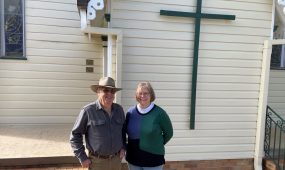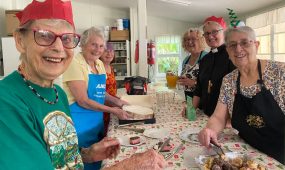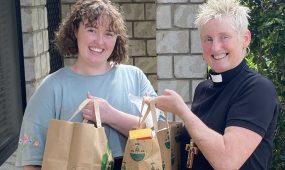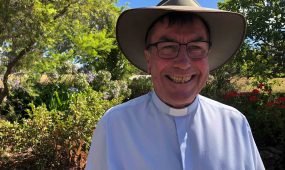Rural crisis learnings from the real experts
The Baru Beat
“The most impactful workshop conversations were led by those living with disability who said that, ‘If you just let me tell you what I have in place, I can be as independent as possible, even in a crisis’,” shares The Rev’d Loretta Tyler-Moss
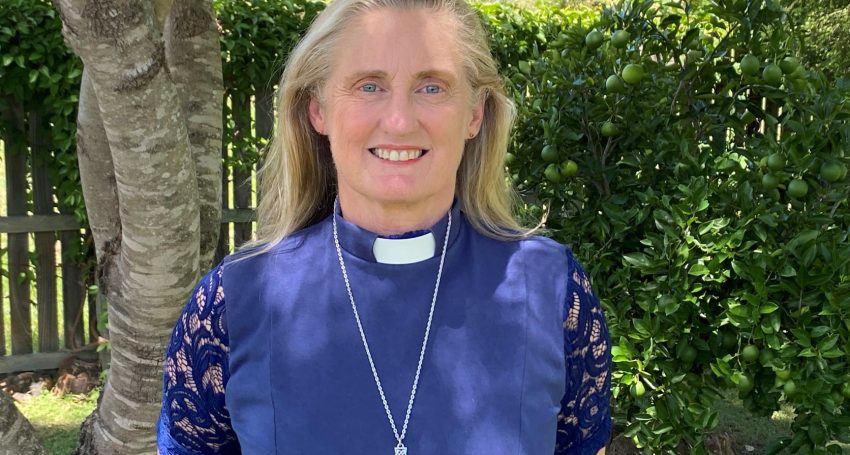
The Parish of Brisbane Valley, which is funded by the Bush Ministry Fund (BMF), is located in a typically beautiful valley. It really is an idyllic rural location, although the weather varies considerably. The Brisbane Valley is either incredibly dry, marked by kilometres of tinder, or very wet, flooded by the Brisbane River and Lockyer Creek, as well as many other tributaries.
The implications of the latter became very real in early 2022 as I waited too long to travel home to Esk from Gatton. I was repeatedly turned back as creeks and crossings rose before my eyes. As the summer of 2022/23 dragged on and our surroundings became increasingly dry, locals shared tales of 2019’s bushfires, which loomed intimidatingly large close to their homes. I am told that Glen Rock State Forest ablaze needs to be seen to be believed.
When the weather turns parishioners often become stranded, sometimes to crisis point, as I discovered one day while chatting with two married community members (whose privacy I have protected by using pseudonyms).
“We won’t be at church on Sunday if this rain doesn’t let up,” warned Tony.
“I understand, the rain is a nuisance,” I replied innocently.
“No, I mean our driveway is already pretty much washed away. We won’t be able to get out,” corrected Tony.
“Yeah, but Gallinani Creek will be up by then anyway,” interrupted Simone.
Thanks to this meteorology lesson whilst driving home from Gatton, I started to catch on.
“So, you will be cut off. Why don’t you just stay in town?” I enquired.
“We’ll be right, we’re used to it. We always stock up. If we can’t get the car in, we park next door and walk over. Mind you, it’s a bit harder now that we need to ensure we have a family member’s medication, especially the prescription one. They won’t dispense it in advance, which is tricky if we can’t get into town.”
Advertisement
“The bigger frustration is not being able to help anymore. One family member was part of the volunteer Fire and Rescue for so long, and he just wants to be out there helping,” shared Simone.
I suddenly started wondering more about where my parishioners live in relation to the tributaries.
I then started listing in my head those who would need help or personal care, and the realities of my fellow community members being able to access medication, food and fuel.
Fortunately, Somerset Regional Council, in conjunction with QDN (Queenslanders with Disability Network) and The University of Sydney, offered answers to some of my concerns.
A full-day workshop was conducted at the Somerset Civic Centre addressing how people with disability can be resilient and appropriately assisted in a crisis. The goal of the workshop was to engage in awareness-raising conversations, so the community is guided by people with disabilities to ensure person-centred emergency preparedness.
Advertisement
The conversations we shared around our tables suggested that automatic evacuation was unnecessary. Instead the importance of consulting with the individual, referencing their personal emergency-preparedness plan and ensuring that any decisions made uphold their independence are the first steps.
The conversations were enlightening, heartening, exciting and challenging. The QDN was well represented in all the workshop groups, helping to ensure that the focus remained on those with specific needs.
One local was excited to share with us that she has a formal personal emergency-preparedness plan outlining her capabilities and clearly specifying her support needs.
Another local expressed his disappointment that he was once not consulted upon evacuation, which meant that essential items were left behind. This made it impossible for him to retain his independence in the refuge centre.
Another was once left fearful and anxious about being left without communication. Her home remains safe, but is isolated during a flood. Power outages leave her emotionally isolated because she is unable to contact her support workers.
The workshop was instigated by the reality that support workers are, generally, unable to access their clients in times of emergency, particularly in rural and remote areas. A significant percentage of support workers live outside our region.
Despite this reality, the message we received is that people with disability can retain independence and be resilient when emergency services and community members consult and listen. Personal emergency-preparedness plans ensure that the hard work of problem solving has been done prior to an emergency.
Time and again the people I spoke with on the day communicated two key things, including their readiness for all contingencies and the pivotal role of neighbours in supporting one another, sharing resources and checking in on each other. Reciprocal care of neighbours is an essential component in rural community emergency management.
While speaking with a Fire and Rescue officer, I sought to clarify my role in emergency situations. I was told that those of us in a position to support others in crisis situations must be fully prepared ourselves. Our preparedness means that we have resources to share and ensures that our family members and other loved ones are safe, so we can be “released” as a community resource.
Related Story
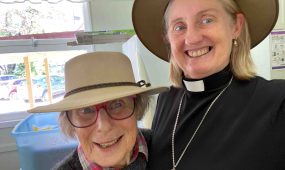 The Baru Beat
The Baru Beat
Oh, the Places You'll Go (in a 4x4)!
Secondly, in supporting our community members – whether they are from church, a club or the wider neighbourhood – we can become a liaison point for emergency services. When we know the needs of vulnerable folk, we can help advocate for them, allowing emergency services to best meet their needs.
This was a day of profound conversations. The most impactful workshop conversations were led by those living with disability who said that, “If you just let me tell you what I have in place, I can be as independent as possible, even in a crisis.”
The Queenslanders with Disability Network workshop was an essential community conversation, and I was blessed to be a part of it. Hearing the voices of those most affected by crises enlightened me and other attendees, so we can all work better together for the community as a whole.
Editor’s note: The Bush Ministry Fund solely funds rural ministry in our Diocese, and it is the only fund that financially supports rural ministry in our Diocese. The Bush Ministry Fund money boxes are a fun and easy way for individuals, families, parishes and schools to donate to bush ministry in our Diocese. Order your BMF money box today by emailing Helen Briffa in the Western Region office via hbriffa@anglicanchurchsq.org.au or by calling 07 4639 1875.

